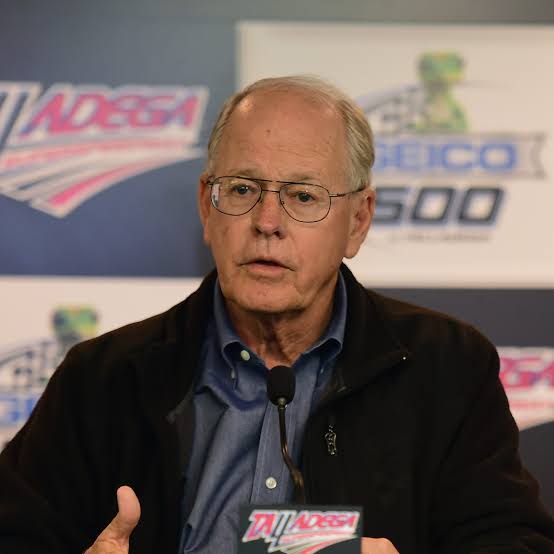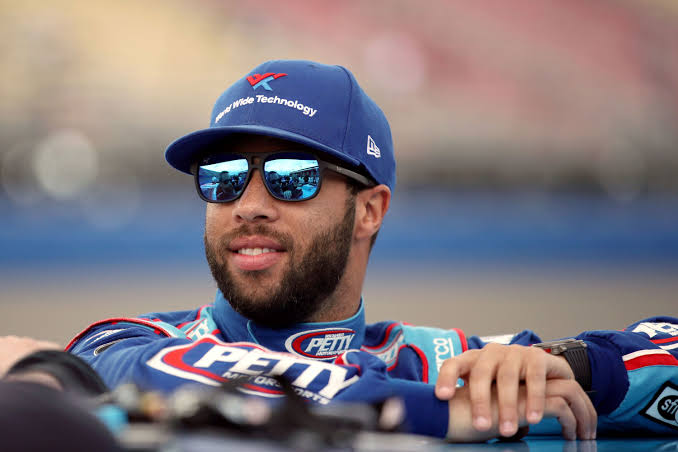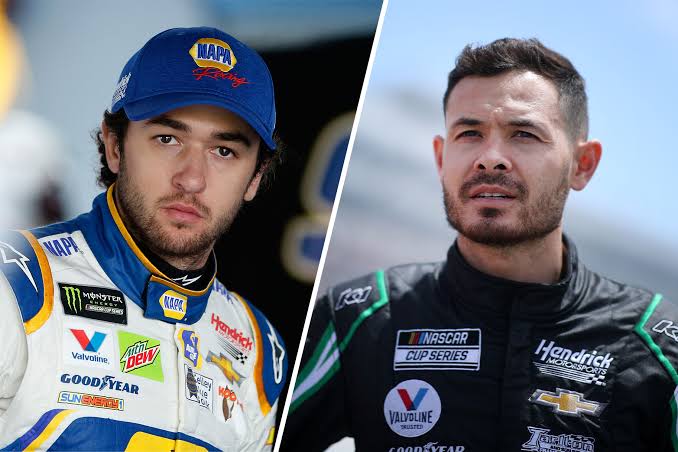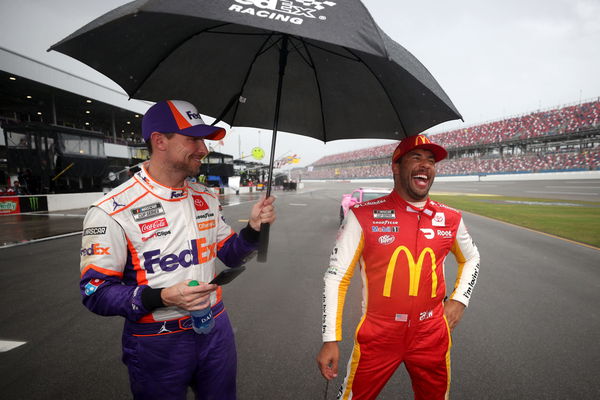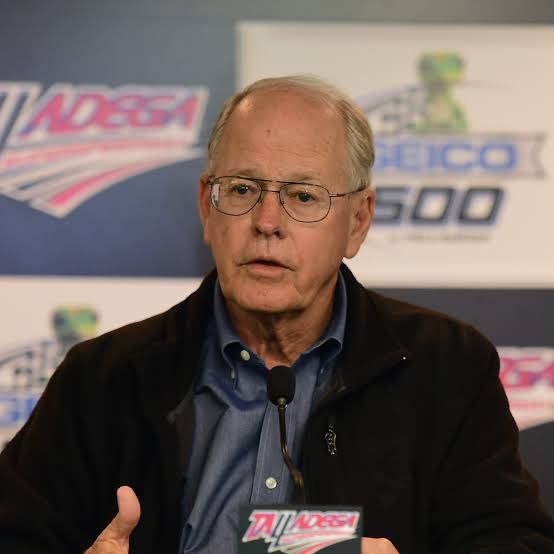
Since Bill France Sr. founded NASCAR on February 21, 1948, at the Streamline Hotel in Daytona Beach, the France family has maintained a tight grip on the sport’s leadership. For 77 years, they have carefully managed its top positions, only entrusting outsiders who have earned their trust. Against this backdrop, Steve Phelps’ historic promotion marks a significant shift, highlighting the profound impact he has had on NASCAR since becoming president in 2018.
This restructuring signals the France family’s growing confidence in non-family executives. In a sport where tradition runs deep—like the asphalt at Martinsville—creating a new senior leadership role is a powerful endorsement of Phelps’ contributions during NASCAR’s most challenging years.
Steve Phelps’ love for motorsports began in childhood, as he shared in the announcement: “I’m honored to take this next step in guiding NASCAR, the sport I’ve loved since my father took me to my first race at five years old.” His lifelong passion has shaped his nearly 20-year career at NASCAR, where he has served as the organization’s fifth president since 2018.
Phelps’ path to becoming NASCAR’s first Commissioner began in 2005 when he joined after successful roles with the NFL and Wasserman. A Vermont native and lifelong racing fan, he has played a key role in navigating the sport through media rights negotiations, sponsorship challenges, and even the global pandemic that threatened live sports.
In a leadership overhaul announced on March 31, 2025, from NASCAR’s Daytona Beach headquarters, Phelps will now oversee all aspects of the sport, including the International Motorsports Association (IMSA) and all 15 NASCAR-owned or operated tracks. At the same time, Steve O’Donnell, NASCAR’s longtime Chief Operating Officer, will step into the role of President—becoming only the sixth person to hold that title in the sport’s history. These moves come after NASCAR secured a groundbreaking media rights deal valued at approximately $7.7 billion over seven years, starting in 2025.
“We are excited to name Steve Phelps as NASCAR’s first Commissioner. His leadership, professionalism, and well-earned respect across the sports industry reflect his immense value to the sport,” NASCAR Chairman & CEO Jim France stated in the announcement. “With more than 50 years of combined experience, both Steve Phelps and Steve O’Donnell bring the expertise, stability, and commitment to bold racing innovations that will continue to serve fans, teams, and stakeholders for years to come.”
Phelps’ promotion follows what he has described as one of the most demanding periods of his career. In a December 2023 interview with The Athletic, he admitted, “These past few months have been incredibly stressful,” as he juggled negotiating NASCAR’s next media rights deal alongside a charter agreement with team owners. “This job is stressful. But I love it, and I’m grateful for it. Still, it’s tough—but also extremely rewarding.”
That stress has certainly yielded results. The media rights deal Phelps helped secure—worth an estimated $7.7 billion—represents nearly a 40% increase over NASCAR’s previous agreement. This landmark deal, which distributes Cup Series races across Fox Sports, NBC Sports, Amazon Prime Video, and Warner Bros. Discovery from 2025 to 2031, played a crucial role in solidifying the France family’s trust in Phelps and cementing his legacy in the sport.
In his new role, Phelps will oversee all aspects of the sport, with a particular focus on strategic growth and international expansion while continuing to collaborate closely with NASCAR owners Jim France and Lesa France Kennedy. This move highlights that while the France family is broadening its executive leadership structure, they remain deeply involved in shaping NASCAR’s future.
During the Prohibition era and beyond, bootleggers transporting illegal moonshine through the Appalachian foothills modified their seemingly ordinary vehicles with powerful engines and enhanced suspensions. These modifications were not only practical for evading law enforcement but also laid the groundwork for competitive racing. Many early drivers, such as Red Byron, who won NASCAR’s first official race on February 15, 1948, had backgrounds in the moonshine trade, refining their driving skills on challenging mountain roads.
The formal organization of stock car racing began in 1947 when Big Bill France convened a meeting with drivers, mechanics, and team owners to establish standardized racing rules. This meeting led to the formation of the National Association for Stock Car Auto Racing (NASCAR). Just two months later, NASCAR held its first official race on Daytona Beach, marking the beginning of an organized competition that would evolve from its rebellious roots into a mainstream motorsport.
NASCAR’s rapid growth continued with the introduction of its first 500-mile race, the Southern 500, on September 4, 1950. What started as informal contests between moonshine runners developed into a professional racing circuit featuring televised events, major sponsorships, and national recognition. By 1989, every NASCAR race was broadcast on television, and drivers became prominent public figures, even making appearances at the White House, solidifying the sport’s transformation from its outlaw origins to a respected national institution.
The France family, descendants of Big Bill France, including Bill France Jr. and Lesa France Kennedy, have carefully preserved their ownership stake in NASCAR while adapting their leadership strategies. As the sport evolved from its rebellious beginnings into a structured corporate entity, the family maintained control until Phelps’ promotion to CEO. NASCAR’s ability to evolve while keeping leadership within the family has played a crucial role in its survival and expansion. Phelps’ appointment stands as a testament to the sport’s ongoing growth despite its unconventional past.
His promotion reflects how NASCAR has balanced tradition with innovation throughout its 80-year history. Big Bill France recognized the need to formalize the sport, and Jim France and Lesa France Kennedy understand that NASCAR’s continued success requires incorporating experienced leaders from outside the family. NASCAR’s ambitions for the future are clear, and Phelps is seen as the ideal choice to drive these plans forward.

